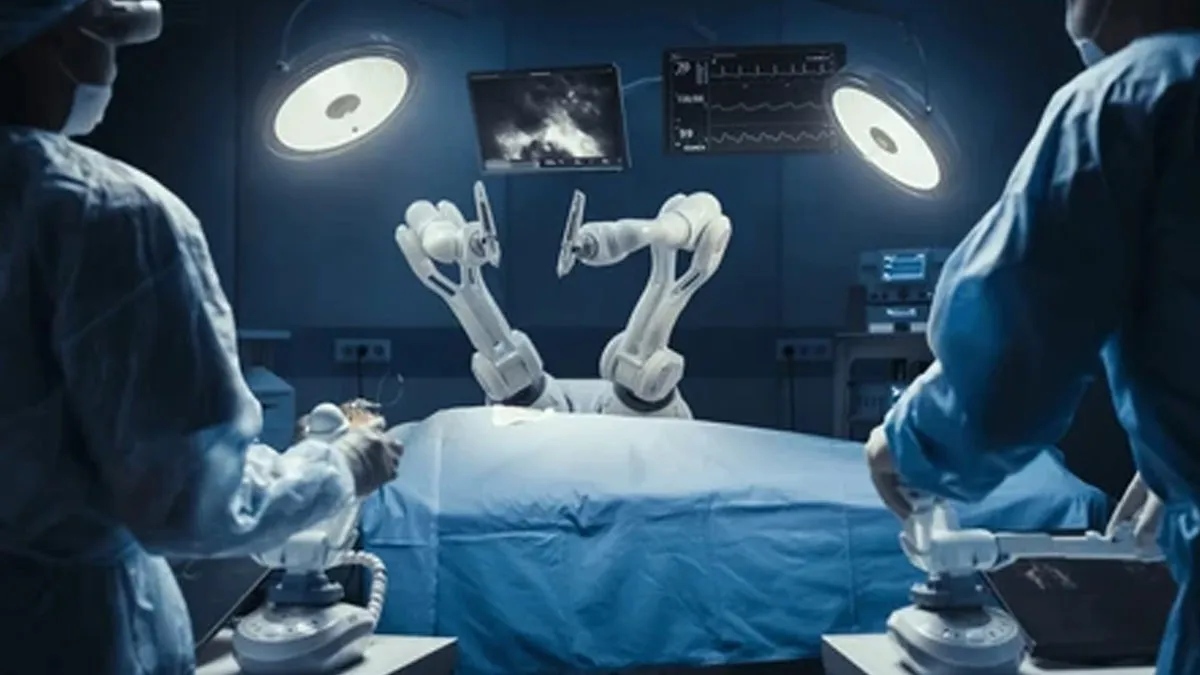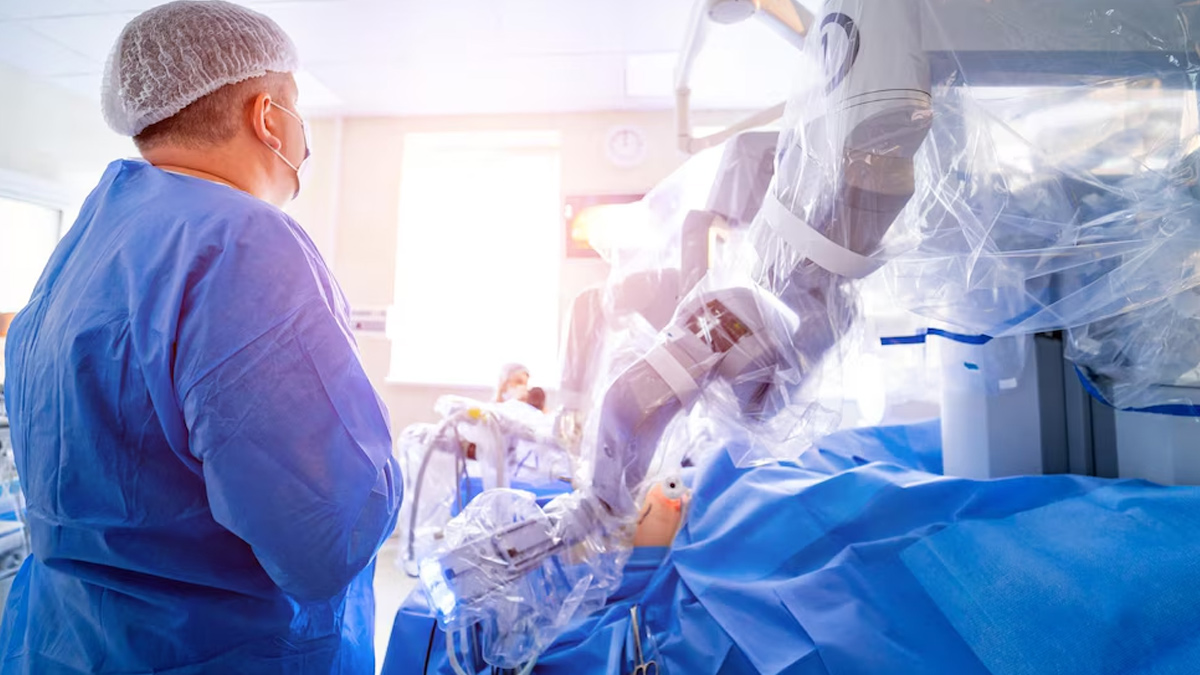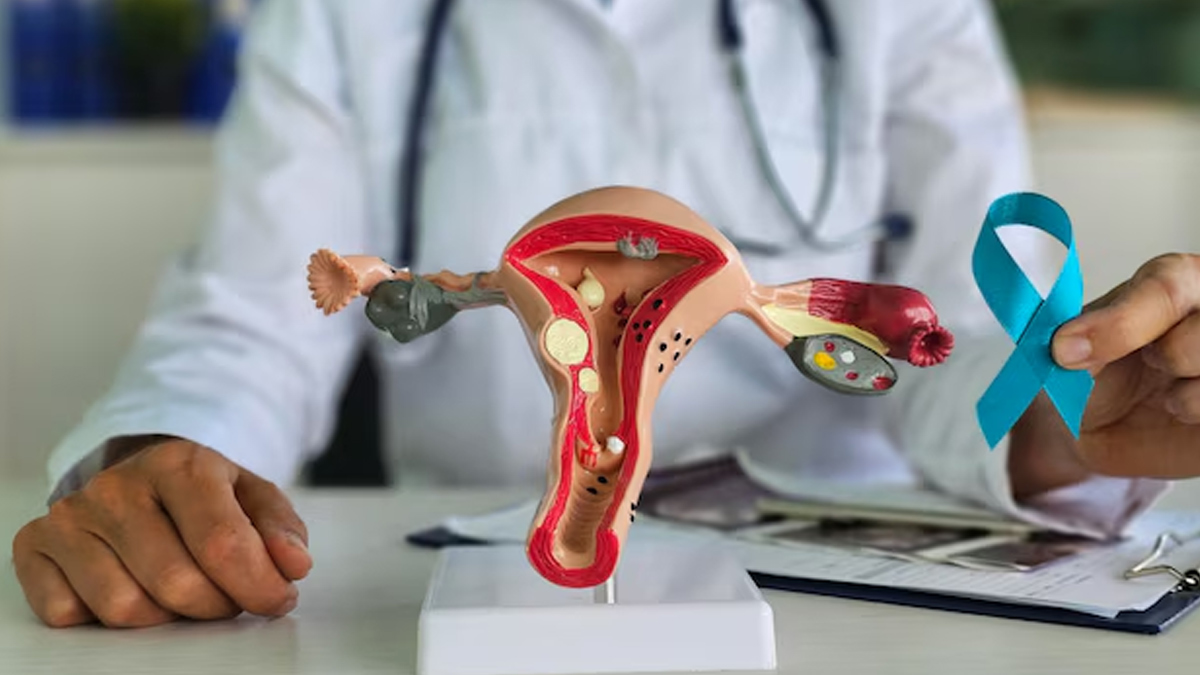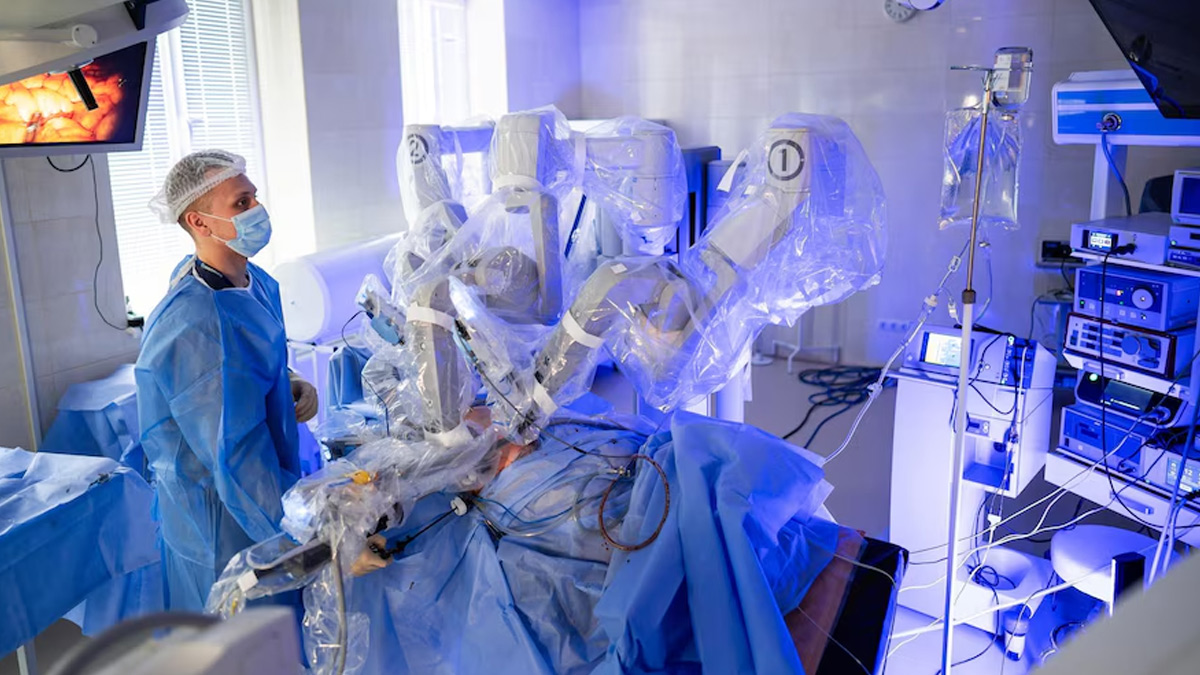
Facing a diagnosis of gynaecological cancer can be overwhelming, especially for women hoping to preserve their fertility. Traditional treatments like surgery, chemotherapy, and radiation often come with the harsh reality of potentially impacting reproductive health. However, advancements in medical technology, particularly robotic surgery, bring new hope. Women now have access to cutting-edge, minimally invasive options that not only fight cancer effectively but also keep the possibility of motherhood alive. We spoke to our expert Dr Ninad, Consultant- Abdominopelvic Surgical Oncology, HCG Cancer Centre Colaba, who explained how robotic surgery is reshaping the possibilities for women with gynaecological cancers.
Table of Content:-

According to a 2017 study, reproductive surgery refers to gynecologic procedures aimed at preserving or restoring fertility. Minimally invasive technologies have revolutionised reproductive medicine, enabling a range of procedures from tubal reanastomosis to ovarian transplantation. Within this evolution, robot-assisted techniques have progressively expanded their scope of application.
Robotic surgery is widely used in gynaecological oncology and for treating non-cancerous conditions. Its ease of use and shorter learning curve make it a preferred choice for procedures like hysterectomy, myomectomy, and sacrocolpopexy. Additionally, its effectiveness and growing popularity in robotic-assisted laparoscopy makes it suitable for managing cancers, such as endometrial and cervical cancer. It is also used in the restaging of ovarian cancer, as stated in a 2024 study.
Advantages of Robotic Surgery
Robotic surgery presents several advantages over traditional open surgical methods, making it a preferred option in fertility-preserving treatments. Here are some listed by Dr Ninad.

- Enhanced Precision and Dexterity: Robotic systems, equipped with high-definition cameras and advanced tools, allow surgeons to navigate intricate areas with extreme accuracy. This precision minimises damage to surrounding tissues and organs, increasing the chances of preserving reproductive functions.
- Minimised Invasiveness: With smaller incisions and reduced tissue trauma, robotic surgery promotes quicker recovery, less postoperative pain, and fewer complications. This is especially significant for women looking to conceive after treatment, as their recovery time is shorter and less taxing.
- Accurate Lymph Node Assessment: Cancer staging is a critical part of treatment planning. Robotic surgery enables precise lymph node dissection, ensuring accurate staging and tailored treatment. This precision can reduce the need for extensive procedures that may negatively impact fertility.
Also Read: Minimally Invasive, Maximal Impact: Robotic Surgery In Lung and Oesophageal Cancer Treatment
Applications in Fertility Preservation
When it comes to fertility preservation, robotic surgery offers targeted solutions for specific gynaecological cancers.

- Early-Stage Cervical Cancer: Robotic radical trachelectomy allows for the removal of the cervix while preserving the uterus and ovaries, making future pregnancies possible.
- Ovarian Cancer: In cases of early-stage ovarian cancer, robotic surgery allows for conservative treatment. Surgeons can remove the affected ovary while safeguarding the uterus and the remaining ovary, ensuring the patient retains her reproductive potential.
Also Read: Busting Myths And Understanding Facts About Robotic Surgeries
Important Considerations
While robotic surgery offers promising possibilities, several factors must be considered:

- Patient Selection: The suitability of fertility-sparing surgery depends on the type, stage, and location of the cancer, as well as the patient's overall health and desire for future fertility.
- Multidisciplinary Approach: A team of gynaecologic oncologists, reproductive endocrinologists, and fertility specialists is essential to ensure the best possible outcome.
- Assisted Reproductive Technologies: In some cases, robotic surgery may be combined with assisted reproductive technologies like egg freezing or embryo cryopreservation to further enhance fertility preservation options.
- Endometrial Cancer: Robotic surgery for endometrial cancer, even in its early stages, typically involves removing the uterus and is therefore not a fertility-sparing option.For endometrial cancers, if fertility preservation is needed then non-surgical measures are needed.
Bottomline
Dr Ninad concluded, “Robotic surgery is a valuable tool for preserving fertility in women facing gynaecological cancer. Its precision, minimally invasive nature, and ability to aid in accurate staging make it a promising option in select cases. However, careful patient selection and a multidisciplinary approach are crucial for successful outcomes. Women diagnosed with gynaecological cancer should discuss their fertility preservation options with their healthcare providers as early as possible to explore all available avenues.”
[Disclaimer: This article contains information provided by an expert and is for informational purposes only. Hence, we advise you to consult your professional if you are dealing with any health issues to avoid complications.]
Also watch this video
How we keep this article up to date:
We work with experts and keep a close eye on the latest in health and wellness. Whenever there is a new research or helpful information, we update our articles with accurate and useful advice.
Current Version